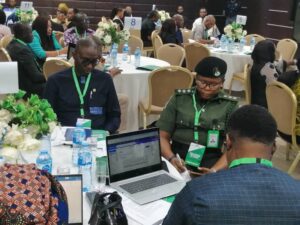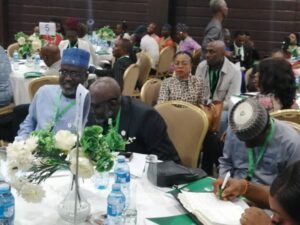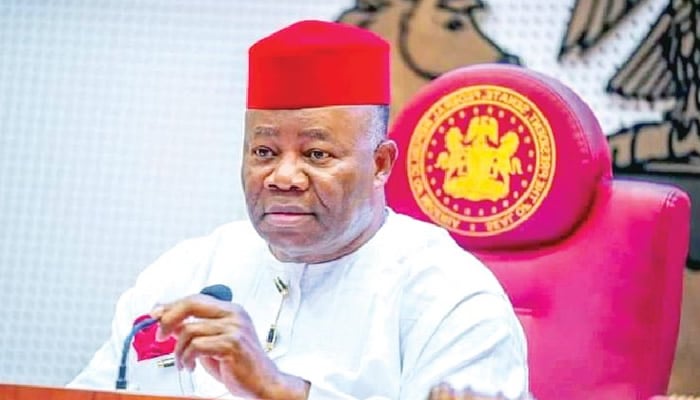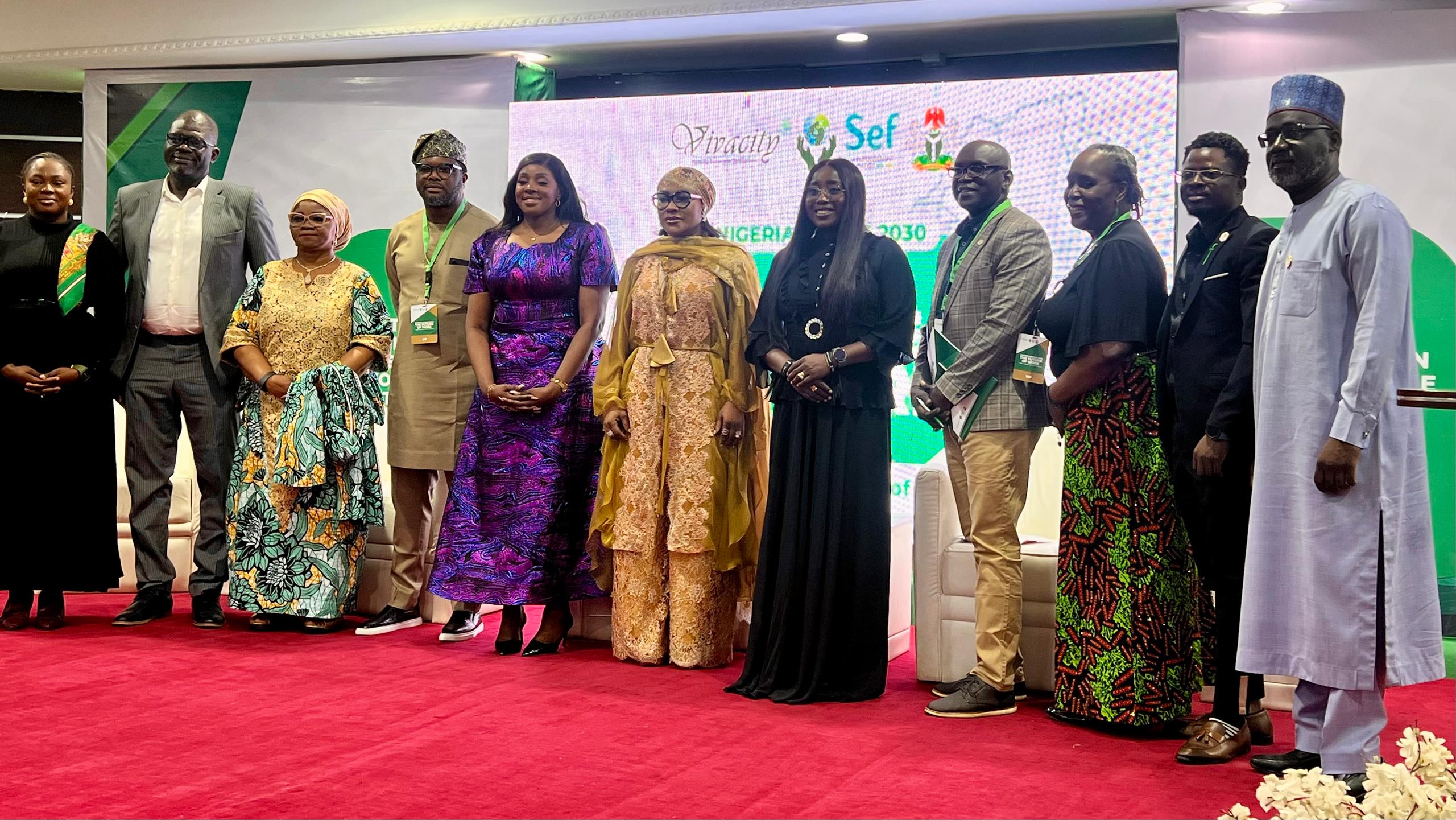By: Goodluck E. Adubazi, Abuja.
With global estimates projecting that 92 million jobs could become obsolete by 2030 due to artificial intelligence (AI) and automation, Nigeria is taking a proactive stance to prepare its workforce for a dramatically changing employment landscape.
Experts estimate that over 1.2 billion employees—nearly half of the global workforce—will be impacted by the digital shift, which may disrupt \$14.6 trillion in wages worldwide. The disruption is expected to disproportionately affect vulnerable, low-skilled populations, posing significant socioeconomic challenges.

To address these concerns, Vivacity Development, in partnership with the Sam Empowerment Foundation (SEF), convened a high-level Executive Consultation on the Future of Work Initiative under the banner “Nigeria Works2030: Empowering the Workforce of Tomorrow.” The forum, held at the Abuja Continental Hotel on July 17, 2025, brought together stakeholders from government, civil society, private enterprise, and academia.
In her opening address, Sam Empowerment Foundation (SEF) Program Director, Ms. Kiema Ogunlana, emphasized the urgency of a collective and inclusive approach.
“This is more than just a forum,” she said. “It is a declaration that we are ready to co-create a future of work that is not only tech-enabled but also human-centered and sustainable.”
Highlighting SEF’s grassroots work with vulnerable communities, Ogunlana shared success stories from the New IDP Camp, where over 60 children have been trained in creative skills such as drawing, tie-dye, and fabric production. The exhibition of their artwork at the event was both a showcase and a fundraiser, with proceeds going directly to educational and mental health support for displaced youth.

Keynote speaker, Mr. Apera Iorwa, underscored the importance of workforce development in his presentation titled “Preparing Nigeria’s Workforce for the Future.” He warned that Nigeria must address its infrastructure deficits and human capital challenges if it hopes to remain competitive.
“Upskilling and reskilling are vital,” Iorwa stressed, noting benefits for both employees and employers, including enhanced innovation, productivity, and economic resilience.
He also called on the private sector to champion technological adoption and innovation, while encouraging workers to embrace adaptability, lifelong learning, and critical thinking.
The consultation outlined strategic priorities, including:
Modernizing worker benefits and protections
Aligning national policy with emerging labor market trends
Investing in ICT infrastructure and capacity development
Vivacity Development’s Executive Director, Engr. Oluwakemi Ann-Melody Areola, elaborated on the initiative’s three-phase approach: raising awareness (the current phase), driving upskilling initiatives, and facilitating job creation. She reaffirmed the need to invest in the future:
“We must prepare now. By 2030, 92 million jobs will no longer exist. Our response must be swift, inclusive, and coordinated.”
A panel discussion reinforced the necessity of multi-sector collaboration to ensure Nigeria’s workforce is prepared for the future. Key drivers identified include the digital economy, innovation in agriculture, the blue economy, energy transition, and the creative industries. However, persistent challenges such as insecurity and corruption were acknowledged as hurdles to progress.
As the global economy evolves, Nigeria’s readiness to transition its workforce may determine its long-term stability and growth. The consensus from today’s consultation is clear: the future of work is already here, and Nigeria must act decisively to ensure no one is left behind.















